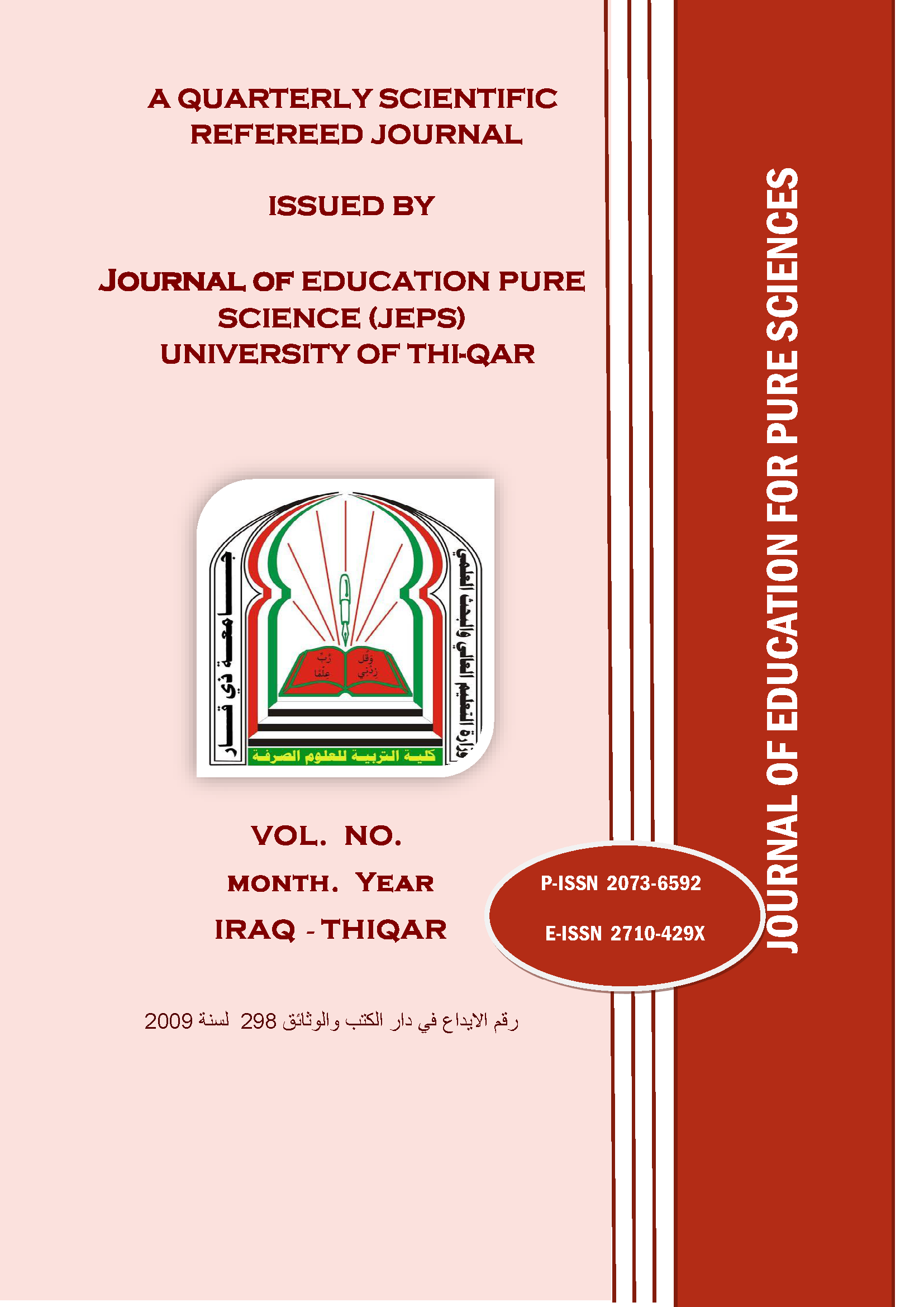Relationship of Some Biomarkers and the Risk of Autoimmune Hypothyroidism (Hashimoto’s) Among the Population in Thi-Qar Governorate
DOI:
https://doi.org/10.32792/jeps.v14i2.437Abstract
This study was designed to determine the prevalence of autoimmune hypothyroidism (Hashimoto's) and its impact on men and women in Thi-Qar Governorat .The current study included (100) people who were in two groups, with (50) people in each group. The first group includes patients with hypothyroidism (Hashimoto's), and the second group includes (Healthy) people who do not suffer from any thyroid disease. Blood samples were collected for the period from (January 1 to March 30/ 2023), for use in measuring the level of thyroid hormones and measuring the level of autoantibodies.
The results of the current study showed that female patients had the highest incidence of autoimmune hypothyroidism (Hashimoto’s), at a rate of (68%), while for males, the incidence rate was (32%). As for the age group, the highest incidence rate was for ages over 40 years, and in both cases of the disease
The results also showed a relationship between (Sex, Family History, Smoking) and the risk of developing autoimmune hypothyroidism (Hashimoto’s). The results of the current study also showed an increase in the average concentration of thyroid-stimulating hormone (TSH) in patients with hypothyroidism (Hashimoto’s), corresponding to a decrease in the average concentration of each of the hormones (T3, T4, FT4) compared to the healthy group. An increase in the level of autoantibodies (Anti-TPOAb, Anti-TgAb) was also observed in patients compared to healthy people.
Downloads
Published
Issue
Section
License
Copyright (c) 2024 Journal of Education for Pure Science- University of Thi-Qar

This work is licensed under a Creative Commons Attribution-NonCommercial-NoDerivatives 4.0 International License.
The Authors understand that, the copyright of the articles shall be assigned to Journal of education for Pure Science (JEPS), University of Thi-Qar as publisher of the journal.
Copyright encompasses exclusive rights to reproduce and deliver the article in all form and media, including reprints, photographs, microfilms and any other similar reproductions, as well as translations. The reproduction of any part of this journal, its storage in databases and its transmission by any form or media, such as electronic, electrostatic and mechanical copies, photocopies, recordings, magnetic media, etc. , will be allowed only with a written permission from Journal of education for Pure Science (JEPS), University of Thi-Qar.
Journal of education for Pure Science (JEPS), University of Thi-Qar, the Editors and the Advisory International Editorial Board make every effort to ensure that no wrong or misleading data, opinions or statements be published in the journal. In any way, the contents of the articles and advertisements published in the Journal of education for Pure Science (JEPS), University of Thi-Qar are sole and exclusive responsibility of their respective authors and advertisers.





